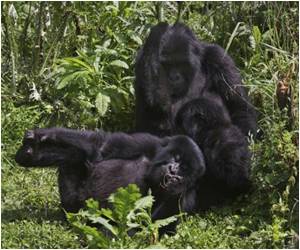A study by anthropologists at UC Santa Barbara raises doubt about the veracity of that five-factor model (FFM) of personality structure as it relates to indigenous populations.

Studying the Tsimane, an isolated indigenous group in central Bolivia, Michael Gurven, a professor of anthropology at UCSB and lead author of the paper, found that they did not necessarily exhibit the five broad dimensions of personality -- openness, conscientiousness, extraversion, agreeableness, and neuroticism.
While previous research has found strong support for what experts refer to as the "Big Five" in more developed countries and across some cultures, Gurven and his team, which includes Christopher Von Rueden, a postdoctoral scholar in anthropology at UCSB and co-author of the paper, discovered more evidence of a Tsimane "Big Two" -- prosociality and industriousness.
These combine elements of the traditional Big Five, and may represent unique aspects of highly social, subsistence societies.
"Similar to the conscientiousness portion of the Big Five, several traits that bundle together among the Tsimane included efficiency, perseverance, and thoroughness," Gurven, who is also co-director of the Tsimane Health and Life History Project, a collaboration between UCSB and the University of New Mexico, with co-director and co-author Hillard Kaplan said.
"These traits reflect the industriousness of a society of subsistence farmers," he said.
Advertisement
The Tsimane live in communities ranging from 30 to 500 people dispersed among approximately 90 villages.
Advertisement
The findings are published in the American Psychological Association's Journal of Personality and Social Psychology.
Source-ANI









